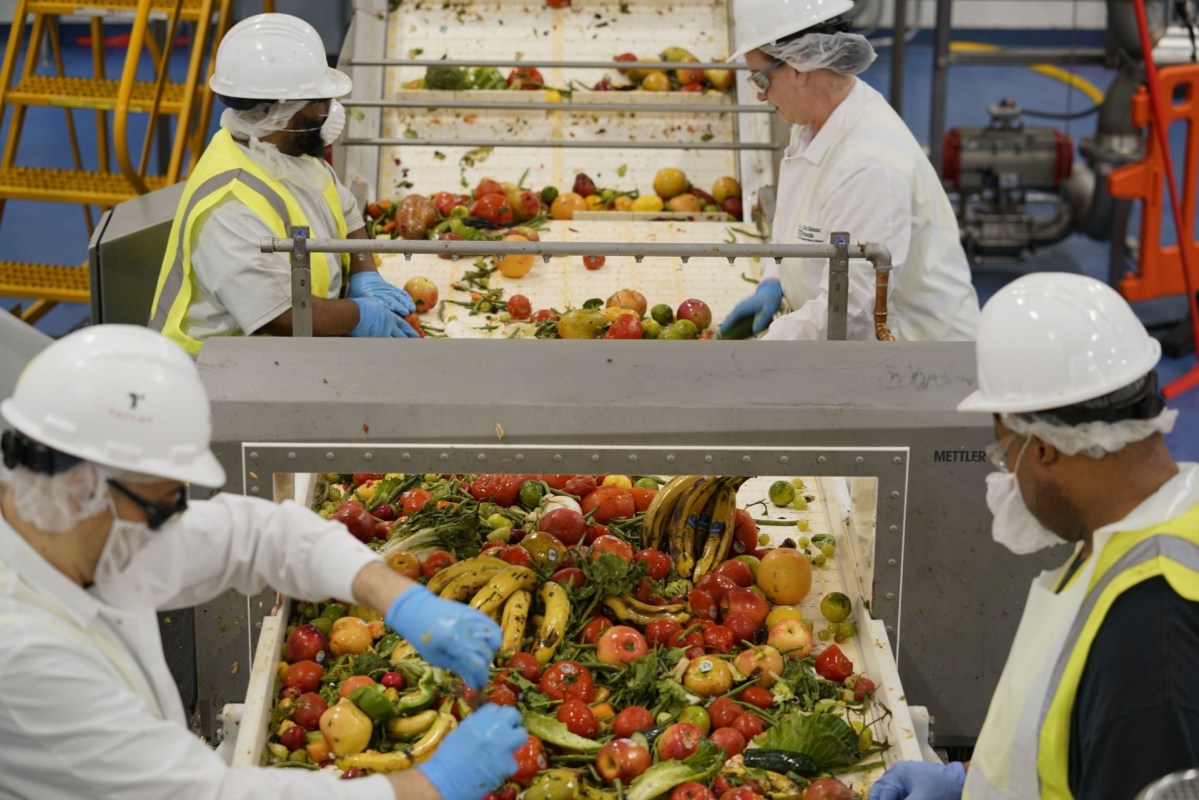For Matt and Justin Kamine, entrepreneurship is quite literally a family business. Their father has founded and operated his own businesses for four decades, and the brothers spent their entire childhoods watching their parents speed off to work on all kinds of ambitious projects.
It only seemed right that, eventually, the brothers would do the same. After college, they founded a large-scale solar energy company, but after years of building and growing, they decided to use the signature Kamine skillset to start a very new kind of family business.
Do Good Foods, which the brothers launched in 2021, is a company that wants to eliminate food waste in America by making it easy for grocery stores to get rid of their excess products. Justin Kamine said the idea started from a very clear motivation.

"We said, 'OK, as a family, how do we take that entrepreneurial infrastructure approach to build a large-scale solution to this large-scale problem?" he told The Cool Down.
Justin isn't exaggerating. Food waste is one of the biggest yet most often overlooked problems in America. A staggering 40% of all food in the country is thrown out each year, with grocery stores, restaurants, and individual households contributing greatly to the issue.
Do Good tackles this problem by helping grocery stores get rid of all the food they'd otherwise throw out.
The company — which was recently named one of Fast Company's most innovative brands of 2023 — partners directly with supermarkets, picking up their excess products and donating what they can. Meanwhile, anything past its sell-by date gets transported to one of Do Good's massive facilities, where it's turned into animal feed.
For the Kamines, the idea was to make the process as easy as possible for grocery stores. That's why Do Good offers its pick-up services totally free of charge.
This way, the grocery stores save money by getting free food disposal, and the Kamines save waste by finding a new home for the excess. It's a business model rooted in circular economics, which refers to companies that reuse existing goods before creating new ones.
"In order to have the greatest impact, you also have to have the greatest profitability," Justin said. "[So] it has to be profitable for each stakeholder."
As Justin points out, humans have been feeding animals their "leftovers" for centuries. But despite the fact that the practice solves two problems — our own human food waste issues as well as the mass amounts of food we grow just to feed livestock — it's remained relatively unpopular.
The Kamines are confident they can change that. Soon, the company will have three processing facilities that can each recycle 60,000 tons of food each year.
And now, the brothers have found a way to make that process even more efficient. In 2022, the company launched Do Good Chicken, its first food product based on chickens grown and raised with the same leftovers it saves from supermarket shelves.
The chicken is sold whole, skinless, bone-in, and as thighs, drumsticks, or breasts — basically, any way you'd usually buy it. Currently, you can find it at stores like Target, Safeway, and Giant. Compared to traditional options, each Do Good Chicken saves four pounds of food waste and keeps three pounds of dangerous carbon pollution out of our atmosphere.
Again, the brothers placed convenience over everything.
"Now we're asking the consumer to move their arm six inches to the right and buy this product," Justin said. "And if it's priced the same or priced below organic [chicken] and tastes delicious, why wouldn't you?"
Do Good Chicken has already had a staggering impact — the Kamines estimate that it's saved 25 million tons of surplus food from going to waste. Next, the company will expand to make eggs the same way, with more options likely to follow.
"The core reason we started this company is to solve food waste," Matt Kamine told The Cool Down. "And the more products we have — and the more adoption of those products [we have] — means the more production facilities we can make and the more ability we have to address food waste."
The Kamines have reason to be confident, and when it comes to their mission, they are. Justin predicts that the company can "solve" America's food waste crisis with just its two current offerings — all it will take, he says, is more stores and customers making the sustainable choice.
Still, it's not hubris that's fueling the brothers' feelings but rather a sense that they've finally found a way to use the family entrepreneurial spirit for something massive — something, Matt says, he can feel good about as a dad.
"It was always kind of ingrained in me that as a parent, you want to leave the world a better place for your kids," he said. "And that's a real, tangible thing."
Join our free newsletter for easy tips to save more, waste less, and help yourself while helping the planet.








